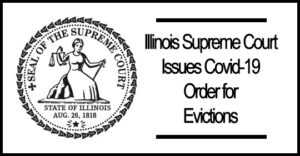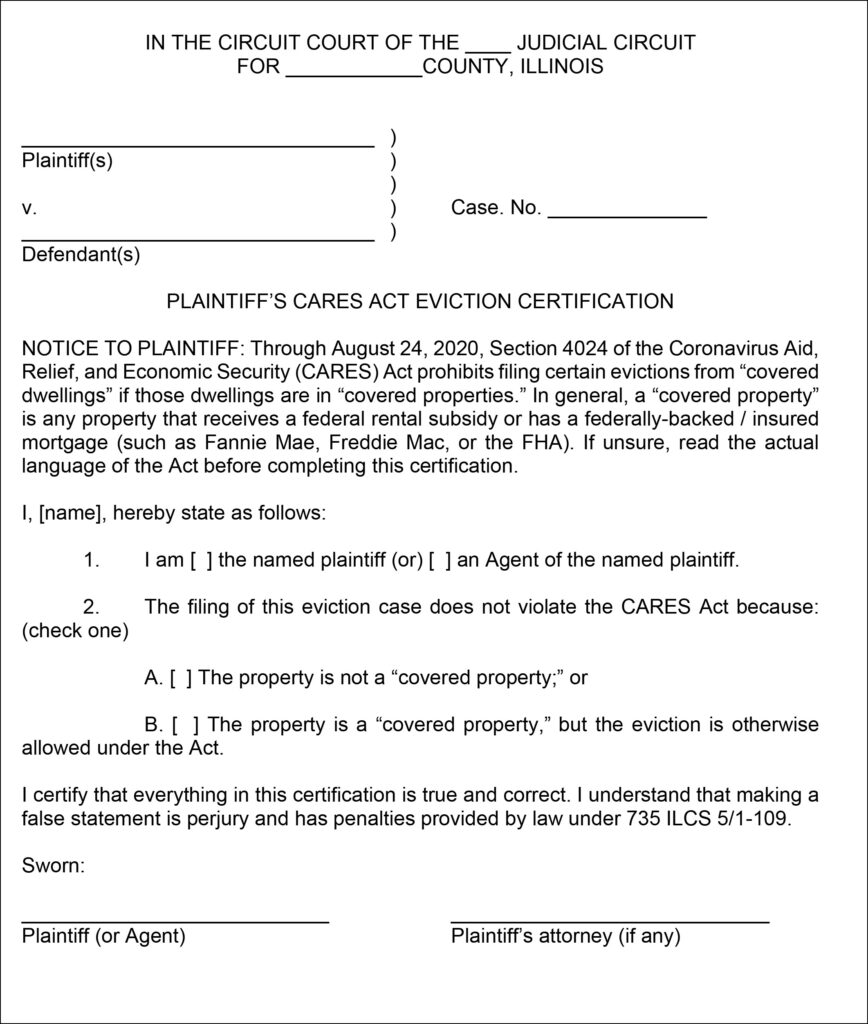 Back to our regularly scheduled programming
Back to our regularly scheduled programming
With all of the hoopla over the proposed Rep Delia Ramirez Covid-19 Eviction Moratorium law, there is one other important issue to report on in the realm of Illinois landlord tenant law. Yesterday, March 22, 2020, the Illinois Supreme Court entered Order 30370. This order temporarily amends the procedures related to eviction cases to bring Illinois eviction jurisprudence in line with the federal Coronavirus Aid, Relief, and Economic Security Act (CARES Act).
Provisions of the CARES Act prohibit housing providers who own rental properties with federally backed loans or who obtain federal assistance (such as Section 8 rent subsidies) from initiating eviction proceedings against their tenants for 120 days after the enactment of the CARES Act (ie. until July 25, 2020). The CARES Act requires that thereafter, rather than serving a 5 day notice for nonpayment of rent, the landlord would serve a 30 day notice, meaning no eviction could be filed until August 24, 2020.
So that the Court can be assured that evictions in Illinois do not violate the act, the Supreme Court has ruled that any residential eviction proceeding commenced before August 24, 2020 under the Illinois Eviction Act (735 ILCS 5/9) will require a plaintiff to affirmatively state in the eviction complaint or in a supporting affidavit whether or not the dwelling unit the Plaintiff seeks to recover in the eviction action is a unit covered by the CARES Act.
The Order goes on to provide that for eviction actions filed after the CARES Act was passed on March 27, 2020 but before the entry of the Supreme Court order, a plaintiff in an pending eviction action must either amend their complaint or provide a supplemental supporting affidavit affirming that the dwelling unit the Plaintiff seeks to recover in the eviction action is a unit covered by the CARES Act.
To ensure that landlords would not have their cases delayed if they were unaware of this new order, the supreme court also added an exception to the requirement of a written certification. Those plaintiffs who fail to provide an affirmation in the complaint or supplemental affidavit can provide testimony under oath in open court that the dwelling unit the Plaintiff seeks to recover in the eviction action is a unit covered by the CARES Act.
Any eviction for nonpayment of rent brought by a plaintiff who cannot make an affirmative statement that the dwelling unit the Plaintiff seeks to recover in the eviction action is a unit covered by the CARES Act will be dismissed.
The Supreme Court Order provides a form to be used by landlords who wish to make the required certification as follows:
 I am not sure when evictions can next be filed, but when they are, landlords will want to talk to an attorney that is up to date on the latest laws and Covid-19 related procedures so that their cases are not further delayed! If you are a landlord seeking some assistance with an eviction or you just require some legal advice or counsel on best practices, please feel free to contact us.
I am not sure when evictions can next be filed, but when they are, landlords will want to talk to an attorney that is up to date on the latest laws and Covid-19 related procedures so that their cases are not further delayed! If you are a landlord seeking some assistance with an eviction or you just require some legal advice or counsel on best practices, please feel free to contact us.
